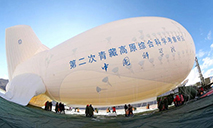Access to potable water enhances quality of life in rural Xinjiang
URUMQI, May 24 (Xinhua) -- Drinking gourd, buckets and giant clay jars -- Nurbiya Aikmu still remembers the various water vessels she had seen at her grandfather's old home as a child.
"In those days, every household had such vessels to hold water, but they are all antique now," said Nurbiya Aikmu, who was born in the 1990s in Payzawat County, northwest China's Xinjiang Uygur Autonomous Region.
This county was once plagued by a dearth of water resources.
"My grandpa told me that the water he drank was salty and bitter, and the process of transporting water was excruciating, as people had to carry water using poles or donkeys. Water in the lower areas was contaminated and appeared brown or green, while during the dry seasons, the water was full of litter, tadpoles and insects and it must be filtered with gauze before drinking," she recalled.
To ensure the safety of drinking water in the rural areas, Xinjiang has launched a series of major water conservancy projects and has upgraded its water conservancy infrastructure over the past decade.
In May 2020, a drinking water safety project with an investment of 1.75 billion yuan (about 262.3 million U.S. dollars) was completed in Payzawat County. A 1,827-km pipeline network began transporting water to residents across the county. "We are fortunate to have access to clean and pure water," Nurbiya Aikmu said.
During the 13th Five-Year Plan period (2016-2020), Xinjiang executed more than 1,400 drinking water projects, solving or improving the problem of safe drinking water for 1.52 million rural residents, including those living in desert hinterlands and remote alpine areas.
"Since the government installed smart water meters for each household last year, I can check my water bill and water pipe failure information through my mobile phone," said Mehmut Memet, from Hexie Village in Chasmiqiti Township of Yecheng County.
"Our life has become sweeter as we have access to clean drinking water," added Mehmut Memet, who is among the beneficiaries.
Xinjiang has nearly 1,300 centralized rural water supply projects, providing water to almost 13.2 million people. The tap water penetration rate of the region has reached 97.5 percent, according to the regional drinking water authorities.
Photos
 China’s central bank to issue commemorative coins on cultural theme of auspiciousness, including two heart-shaped coins
China’s central bank to issue commemorative coins on cultural theme of auspiciousness, including two heart-shaped coins Population of endangered black-headed gulls exceeds 10,000 mark in NE China’s coastal city of Panjin
Population of endangered black-headed gulls exceeds 10,000 mark in NE China’s coastal city of Panjin China's self-developed floating airship breaks record
China's self-developed floating airship breaks record Chinese germplasm bank conserves biodiversity in warm temperate zone
Chinese germplasm bank conserves biodiversity in warm temperate zone
Related Stories
- Xinjiang couple in Kashgar start up copperware shop to carve out a bright future
- Xinjiang locals' life blooming with safflower
- Commentary: Any plot to use Xinjiang against China is doomed to failure
- Decade of all-round development benefits everyone
- Female entrepreneurs embroider golden future for rural women
Copyright © 2022 People's Daily Online. All Rights Reserved.






